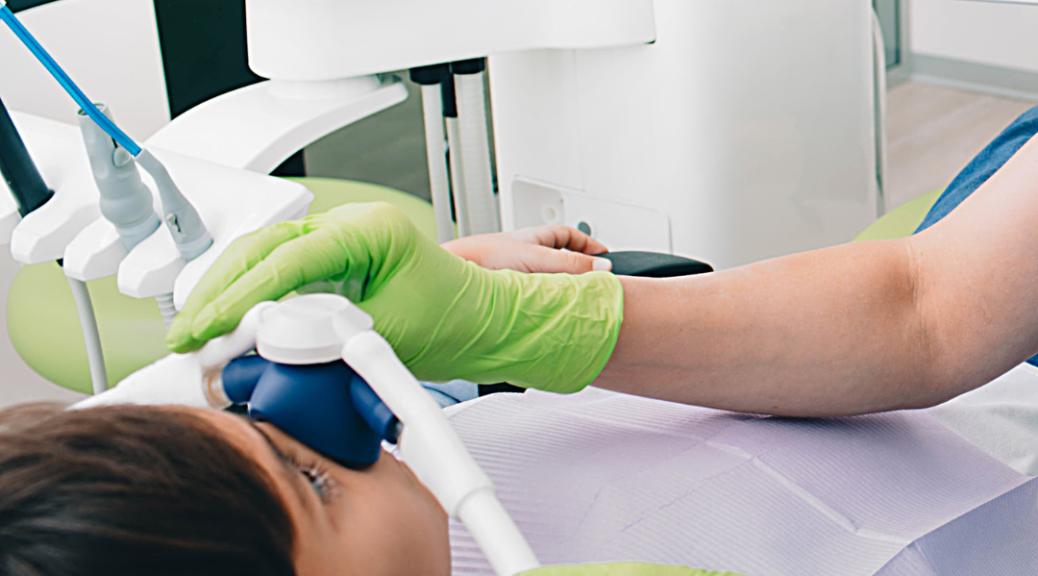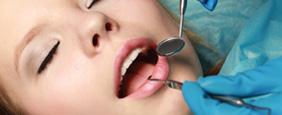When it comes to dental procedures, many people experience anxiety and apprehension. Fortunately, sedation dentistry provides various options to help patients relax and stay comfortable throughout their appointment. Two popular methods of sedation are oral conscious sedation and nitrous oxide sedation. These methods are effective but used in different circumstances and have other effects. Here’s an overview of their differences and when they might be appropriate.
Oral Conscious Sedation
Oral conscious sedation involves taking a prescribed pill before the procedure. These medications are typically in the benzodiazepine family, such as Valium, Ativan, or Halcion. They can reduce anxiety and induce calmness. Your dentist can adjust the degree of sedation based on what you may require.
Onset and Duration: The effects of oral sedation typically start within an hour of taking the medication and can last several hours, depending on the dosage and individual factors. Because of this, having a friend or family member drive you to and from your appointment is crucial.
Level of Consciousness: With oral conscious sedation, you remain awake and responsive during the procedure, but you’ll likely be drowsy and less aware of your surroundings. You may only remember a little of the procedure afterward.
Ideal Uses: Oral conscious sedation is often recommended for patients with moderate to severe dental anxiety, more prolonged procedures, or complex dental needs. However, it is not recommended for patients with certain medical conditions or those taking specific medications, so a thorough medical history is essential.
Nitrous Oxide Sedation
Also known as “laughing gas,” nitrous oxide is a colorless, odorless gas inhaled through a mask placed over your nose. It produces feelings of relaxation, euphoria, and even mild giddiness, hence the nickname.
Onset and Duration: Nitrous oxide works quickly, typically within a few minutes, and the effects wear off soon after removing the mask, which means you can drive yourself to and from your appointment without needing assistance.
Level of Consciousness: Nitrous oxide leaves you fully conscious and responsive but with a heightened sense of relaxation and decreased pain perception. Unlike oral conscious sedation, you’ll remember the procedure and feel less stressed and more pleasant.
Ideal Uses: Nitrous oxide is suitable for patients with mild to moderate dental anxiety, short procedures, or those who need a quick return to normal activities. It’s safe for most patients, but discussing your medical history with your dentist is still essential.
Apples to Oranges
Oral conscious sedation is more potent than nitrous oxide and is better suited for patients with higher levels of dental anxiety or more complex dental needs. It requires planning, as you’ll need someone to accompany you. The amnesic effects can also be a significant advantage for those with extreme dental phobias.
Nitrous oxide is less potent but is more convenient and versatile. It’s a good option for those with mild anxiety or those undergoing shorter, more straightforward procedures. The ability to drive yourself to and from your appointment is a significant advantage for many patients.
Ultimately, the choice between oral conscious sedation and nitrous oxide sedation will depend on your specific needs, level of anxiety, and the procedure you’re undergoing. Discussing your options with your dentist and providing a complete medical history to ensure your safety and comfort during the procedure is important. Sedation dentistry has made dental care more accessible and less stressful for many patients. To learn more about how sedation dentistry can help you, schedule an appointment with Dr. Banik and his team at Carolina Family Dentistry today.








